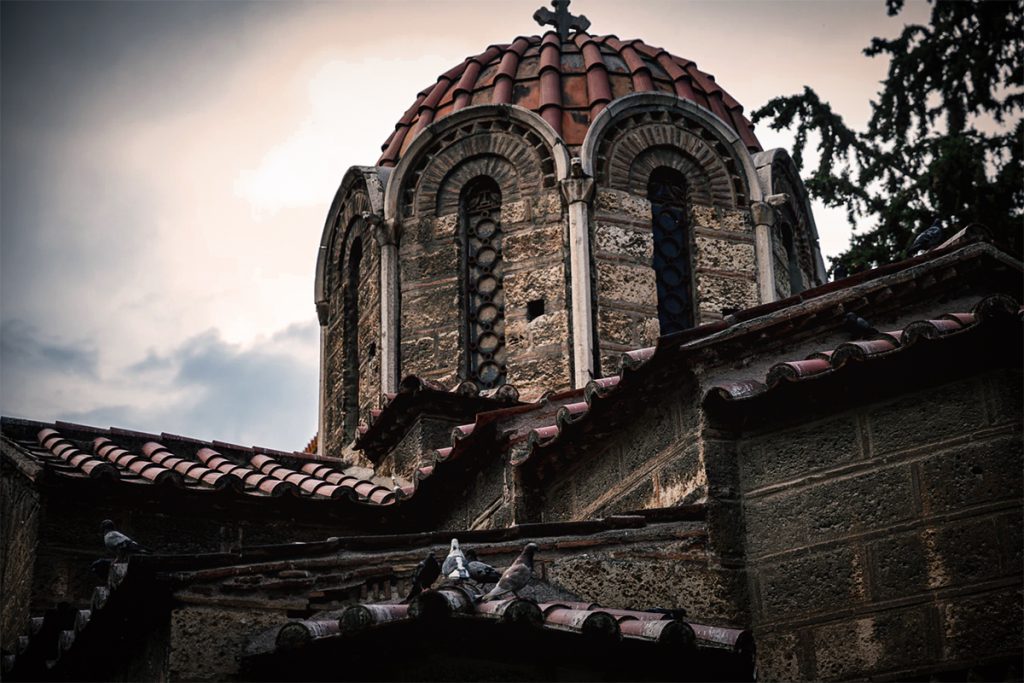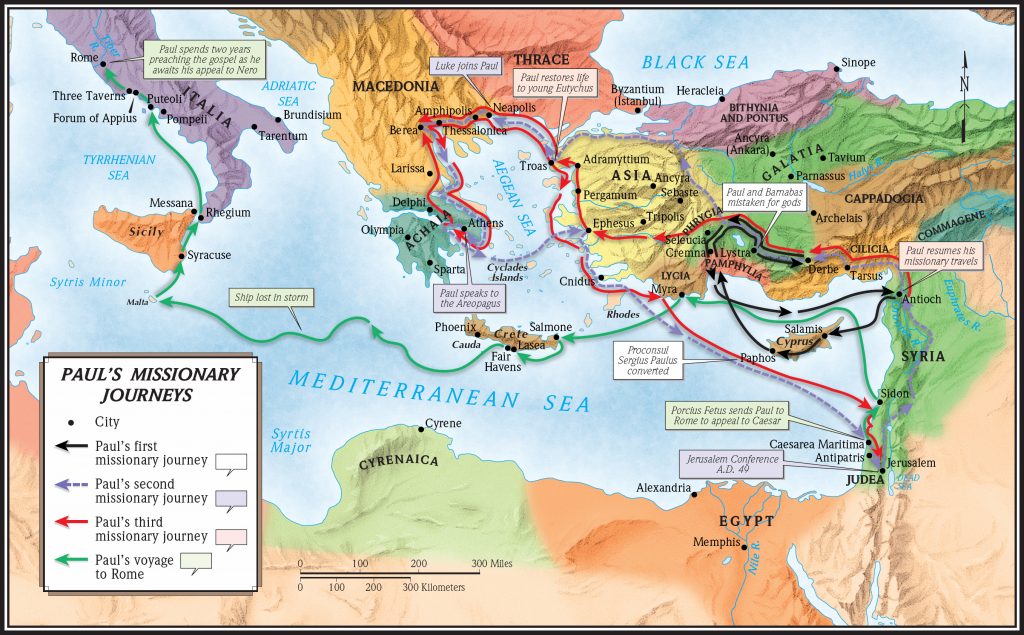To further understand the birth of the early Church, it is necessary to recognize what occurred at Antioch in ancient Syria.
After Stephen’s life was taken by people hostile to his testimony and faith in Christ, Jewish believers who were also at risk of mob violence and persecution fled to other regions beyond Judea and Samaria. As they traveled far off and sought refuge, it was by God’s sovereign intent that His church would form in Antioch at a nearby seaport where it could extend outward to new territories across the Gentile world. So, as a matter of course, Antioch became the fertile ground of Christianity after Stephen’s martyrdom. The city became the Holy Spirit’s center of emergent churches among Gentiles, where incursions into Asia Minor, Israel, and around the Mediterranean Sea took place. Said another way, Antioch’s early churches became the center of Gentile Christianity with a strong focus on missions, ministry, and discipleship.
The leadership at Antioch included Barnabas, Simeon, Lucius, Manaen, and Paul. They all together in unison, stature, and notoriety was a mix of people with various backgrounds. They were people of multiple cultures, languages, and lifestyles who understood the geography, social makeup, cultural conditions, and false religious impediments before them. They, among other Jewish disciples in the area, were situated in pagan territory. They were deeply seated in a Hellenistic area with Greco-Roman conditions and pressures present at the time. Nevertheless, their positioning and the Holy Spirit’s work situated them for growth in Antioch and well beyond that to fulfill God’s instructions to take the gospel to the Gentiles.
From prayer and by the Holy Spirit’s instructions, Barnabas and Paul were set aside and dedicated in their missionary efforts concentrated toward Gentiles. They were to become pioneers of the gospel to Gentile territories as they charted their routes toward a network of churches between Antioch and Asia Minor, including Cyprus, Cyrene, Jerusalem, and well beyond that to Macedonia. Into the surrounding areas around the Mediterranean Sea, churches became further developed in time as they organically grew in population. Along with additional local outreach, there were several missionary journeys from Antioch to advance the gospel (Acts 12:25-13:1, 14:26, 15:36-40, 18:22-23). These were journeys that involved the harvesting of people hungry for valid spiritual meaning. Yet with personal hardships and uncertainties, they pressed ahead even with disputes and divisions that ran counter to what their missions required. With persistence, informed truth, and the power of the Holy Spirit, their overall pursuits cast a wide net to yield a significant return on their efforts chartered by the Antioch Church.
Scriptural and historical records identify various missionaries including Silas, Judas, Paul, Barnabas, John Mark, and others. All of them to fulfill Christ’s instructions to reach the world beyond Jerusalem and Samaria. With successes, trials, and hardships, the Antiochene church commissioned its people to travel abroad to spread the gospel and cultivate the ongoing Christian movement among new churches throughout more Mediterranean territories.

















Comments are closed.